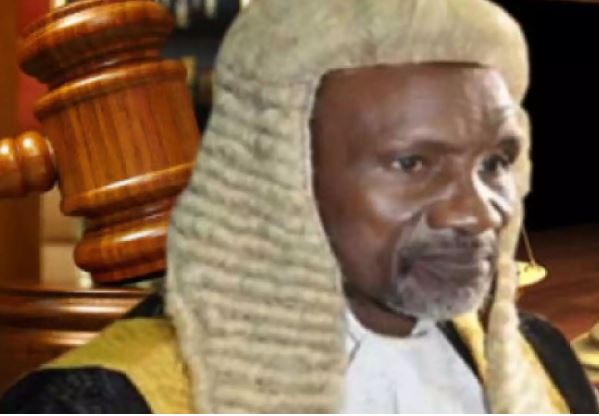TVC E. Following the Nigerian economic situation, the chief justice of Nigeria Mahmud Mohammed has given insight on the
various ways to tackle corruption in the country.
Speaking at international workshop on the judiciary and the fight against corruption which took place in Abuja yesterday Monday, July 18, Mohammed said corruption is fundamental to Nigeria’s economic growth, development and national well-being.
Mohammed said the following: “I daresay that corruption cannot be easily tackled without transparent, efficient and speedy delivery of justice. Indeed, this is fundamental to our economic growth, development and national well being.” He however said that while the judiciary have more role to play beyond adjudication, it will need to employ a multi-pronged approach in tackling corruption in the society.
“Tackling corruption is neither easy nor quick and it is a symptom of deep-rooted factors. The causes are complex and the means to control corruption are gradually being understood,” Mohammed said.
“There is no single magical solution, as is with most problems in development; it must be tackled simultaneously on all fronts, individually and collectively. Hence, we must do our part and act now. “Our actions must be concrete, ethical and time-bound, as are necessary to ensure an efficient and effective justice system,” he said.
Adding that the Nigerian courts have been proactive, Mohammed said various judges and court have also been dedicated to hearing and determining economic crimes and corruption cases. This, he said were established for the purpose of fast tracking the cases which have grave impact to the country.
“In 2013, various jurisdictions from the High Courts, the Court of Appeal and the Supreme Court, acting under the auspices of the Board of Governors of the National Judicial Institute, initiated and introduced Practice Directions on Kidnapping, Corruption and other Serious Offences, that provides a framework for the fast tracking of major crimes and corruption cases,” he said.
Mohammed further called on all parties involved in corrupt or criminal proceedings to avail themselves to the innovations of the Administration of Criminal Justice Act, 2015, in order to ensure delay of court processes becomes obsolete.
“The issue of undue delay by technicality, which hitherto plagued the criminal justice system, has also been addressed by the enactment of the Administration of Criminal Justice Act, 2015. “The Act has barred the entertainment of interlocutory applications by any court, limited the number of adjournments that a court may grant, provides for a day-to-day trial until conclusion of the case and permits trial in absentia, among initiatives too numerous to mention in this address,” he said.
What are your thoughts on this?















